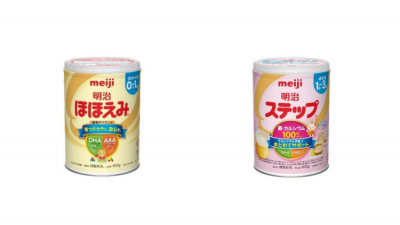Novel infant formula promotes growth comparable to standard products – Danone-funded trial

This infant formula is novel in the sense that its milk droplet lipid structure is different from existing products and mimics the lipid structure of breast milk.
In particular, the milk droplets are larger – having a mode diameter of three to five micrometre. They are also covered by a tri-layer membrane consisting of phospholipids, milk proteins, and cholesterol.
In contrast, standard infant formulas are present as lipid droplets with a mode diameter of about 0.5 micrometre, with mainly proteins adhered to their outer surface area.
A study was conducted at the National University Hospital and the KK Women’s and Children’s Hospital in Singapore to compare the effects of this novel infant formula concept trademarked Nuturis versus that of standard infant formulas.
It was a randomized, double-blind, controlled, 3-arm, parallel-group intervention trial using three different infant formulas, namely:
- Control formula without prebiotics
- Control formula containing prebiotics
- Concept formula containing prebiotics
The prebiotics was a blend of short chain galacto-oligosaccharides (GOS) and long chain fruto-oligosaccharide (FOS) at a ratio of 9:1.
Other than that, all formulas contain similar amounts of calories, proteins, and lipids.
They also contain a whey to casein ratio of 60:40 and had a similar lipid content and fatty acid composition, with a DHA to ARA ratio of 1:2.
Funded by Danone Nutricia, the first stage of the study aimed to compare the effects of this novel infant formula concept trademarked Nuturis versus that of standard infant formulas in impacting infant growth.
Findings of the study were published in Nutrients.
Study design
A total of 539 healthy-term one-month-old infants were enrolled into the study, including 67 breastfed infants whose growth progress served as a reference to the study.
The remaining were randomised to receive one of the three formulas until they turn 12 months old.
The primary outcome measure of the current study was the daily weight gain (g/d) until 17 weeks of age.
Only data of infants who were fully formula-fed by 28 days of age were included for analysis. Eventually, the data of 92 infants were included.
Equivalent weight gain
First, the study found that there was equivalent daily weight gain for infants fed with the novel infant formula and control formulas by week 17 of the study.
The daily weight gain in infants from the concept formula group was 30.05g/d while that of those fed with the control formula containing prebiotics was 29.96g/d – which was a difference of 0.09g/d.
The daily weight gain between the groups was considered equivalent as they fell within the pre-defined margins of ±3 g/d.
Infants from the breastfed reference group had a daily weight gain of 30.52g/d, also equivalent to infant from the concept formula group.
On the other hand, mean weight, length and head circumference were not statistically significantly different between the infant formula-fed and breastfed infants.
Gastrointestinal tolerance
There was no significant difference in daily stool frequency between the groups, although infants fed with the control formula without prebiotics had a slightly lower daily stool frequency.
In terms of stool consistency, infants fed with the concept formula had a statistically significant different stool consistency score compared to both control groups.
For example, there was a higher percentage of infants from the concept formula group who had at least one watery stool per day.
However, the mean stool consistency scores were not statistically significantly different between infants from the concept infant formula and breastfed reference group.
Serious adverse events
There were some serious adverse events reported during the trial, with mostly related to infections and infestations.
A breakdown of the figures shows that 11.8 per cent of the infants taking the concept formula experienced serious adverse events, as compared to 9.6 per cent and 8.4 per cent in infants fed with control formula and control formula without prebiotics respectively.
Only six per cent of the infants from the breastfed group experienced serious adverse events.
The researchers said that the adverse events were not related to the intake of the study product.
“None of the SAEs in any group was considered to be related to the intake of the study product, except for a severe case of regurgitation in the control w/o prebiotics group, which was assessed as possibly related.
“Overall, the reported types of (serious) adverse events are typical for young infants and no clinically relevant difference in the frequency, relatedness, type or severity of (serious) adverse events was observed between formula groups,” the researchers said.
“The results of the current study suggest that a concept IF [infant formula] with large, milk phospholipid-coated lipid droplets supports adequate growth and is well tolerated and safe for use in infants.
“The potential long-term effect of lipid droplet characteristics in infant nutrition on growth trajectories, body composition and metabolic development, as well as other health outcomes, remains to be elucidated,” the researchers concluded.
Source: Nutrients
An Infant Formula with Large, Milk Phospholipid-Coated Lipid Droplets Supports Adequate Growth and Is Well-Tolerated in Healthy, Term Asian Infants: A Randomized, Controlled Double-Blind Clinical Trial
https://doi.org/10.3390/nu14030634
Authors: Marieke Abrahamse-Berkeveld et al
















